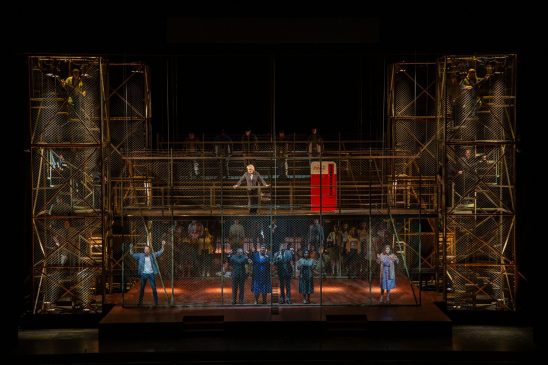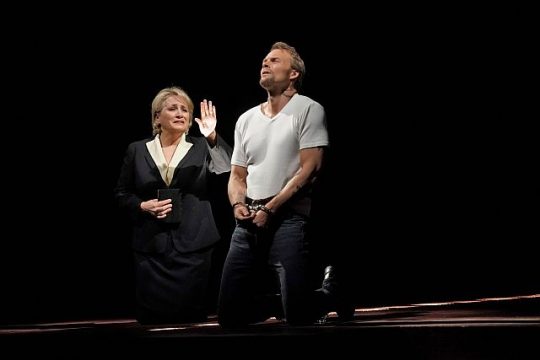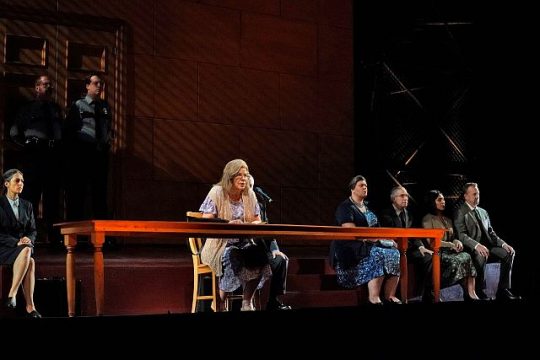4 stars

Every season opera houses around the world include at least one story of murder and often, its consequences. But whether clothed in lyrical or dramatic music by famous composers, their librettos typically focus on mythology or historic tales. Those productions seldom produce the kind of gut-wrenching reactions and post opera discussions sparked by “Dead Man Walking,” now at the Lyric Opera of Chicago through Nov. 22, 2019.
Written by composer Jake Heggie and librettist/playwright Terrence McNally and first produced by the San Francisco Opera at the War Memorial Opera House in October, 2000, the opera is based on a 1993 non-fiction book of the same name by Sister Helen Prejean, a Roman Catholic nun.
Sister Helen, a member of Sisters of Saint Joseph of Medaille in New Orleans, was against capital punishment and served as a spiritual adviser to two convicted murderers on Death Row. The phrase “dead man walking” was commonly used in American prisons for a man who received the death penalty for his crime.

Heggie and McNally’s opera is not about the innocence of murderer Joseph De Rocher, dramatically portrayed by bass baritone Ryan McKinny. He is convicted of raping and then brutally stabbing to death a teenaged girl. His younger brother, Anthony De Rocher, received a life sentence for participating in the crime and shooting the girl’s boyfriend.
The opera, primarily taking place in the early 1980s at the Louisiana State Penitentiary known as Angola for its site on the former Angola Plantation in Louisiana’s West Felicianna Parish, starts with the murders.
Sister Helen, soprano Patricia Racette, is leading youngsters in a spiritual piece, “Gather Us Around, ” before she announces she has to go to Angola because Joseph who had been corresponding with her, asked to meet, face to face.

Elaine J. McCarthy projections take Sister Helen and audiences on a long, hot drive to Angola. Some comedic relief comes in the form of a motorcycle cop who stops her for speeding, then tears up the ticket when he learns she is a nun.
There are a few other comedic moments but set against Michael McGarty’s magnificent set design, the opera really is about the interaction between Sister Helen and Joseph.
Audiences do hear the heartbreak of the teens’ parents, the Harts and the Bouchers, at a board hearing. And at that hearing, Joseph’s mother (mezzo soprano Susan Graham) pleads for her son’s life.
“Dead Man Walking” does not excuse or rationalize a horrible murder. The book and the opera is about crime and punishment, guilt and redemption.
A number of factors make the Lyric production particularly powerful. Racette and McKinny perfectly act out McNally’s cut-to-the-heart libretto. Heggie’s dramatic music is well-interpreted by conducted by Nicole Paiement of San Francisco’s Opera Parallele.
Leonard Foglia’s directing and staging with Brian Nason’s lighting and Roger Gans sound design create an edgy emotionalism that leaves the audience saying wow as they exit.
“Dead Man Walking” is at the Lyric Opera House, 20 N. Wacker Dr., Chicago, on select dates through Nov. 22, 2019. Running time: 2 hours, 55 minutes. For tickets and other information call (312) 827-5600 or visit Lyric Opera/Dead Man Walking.
Jodie Jacobs
For more shows visit Theatre in Chicago
